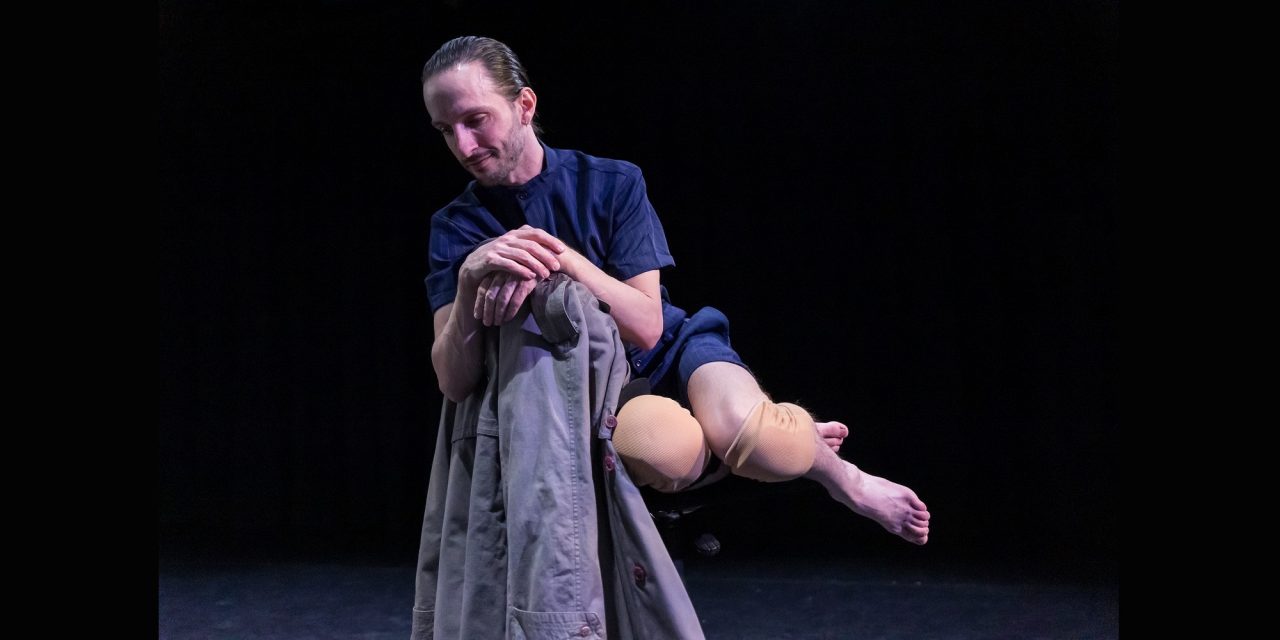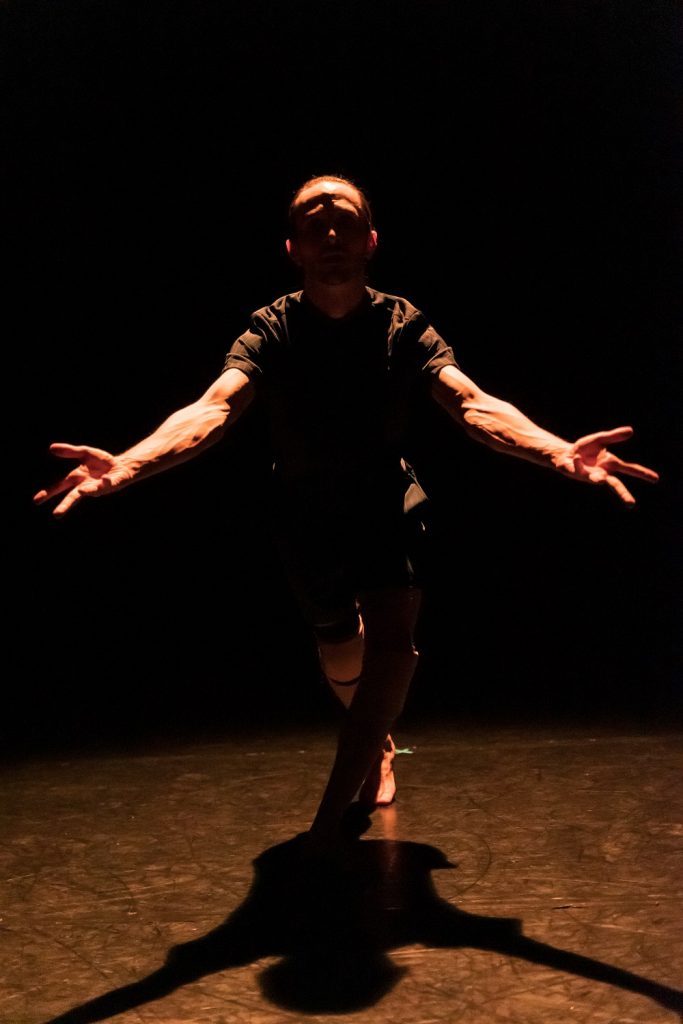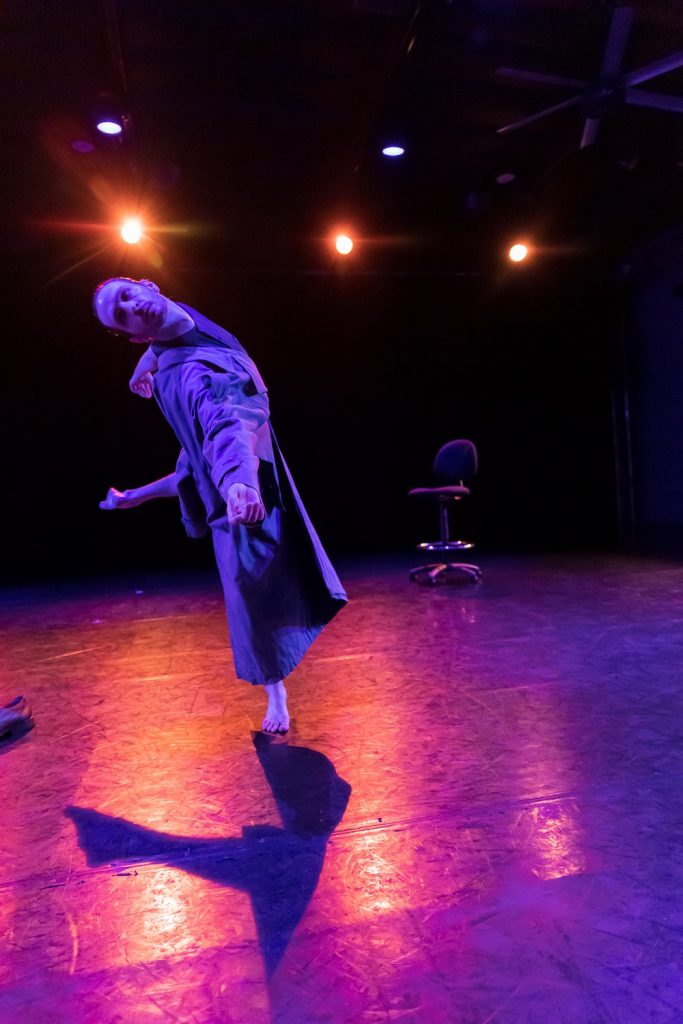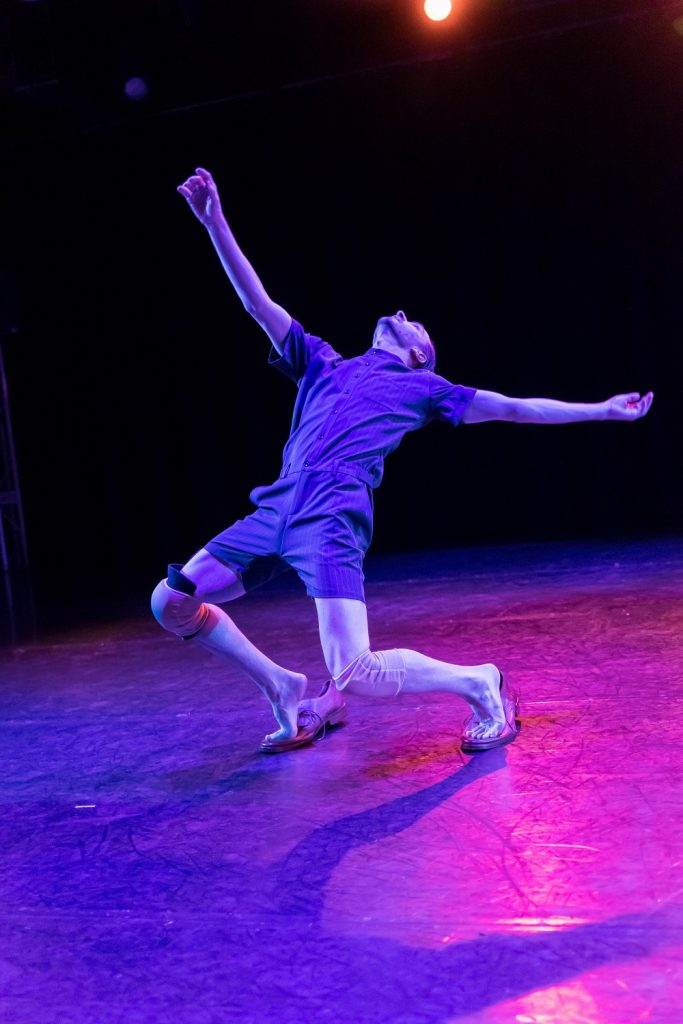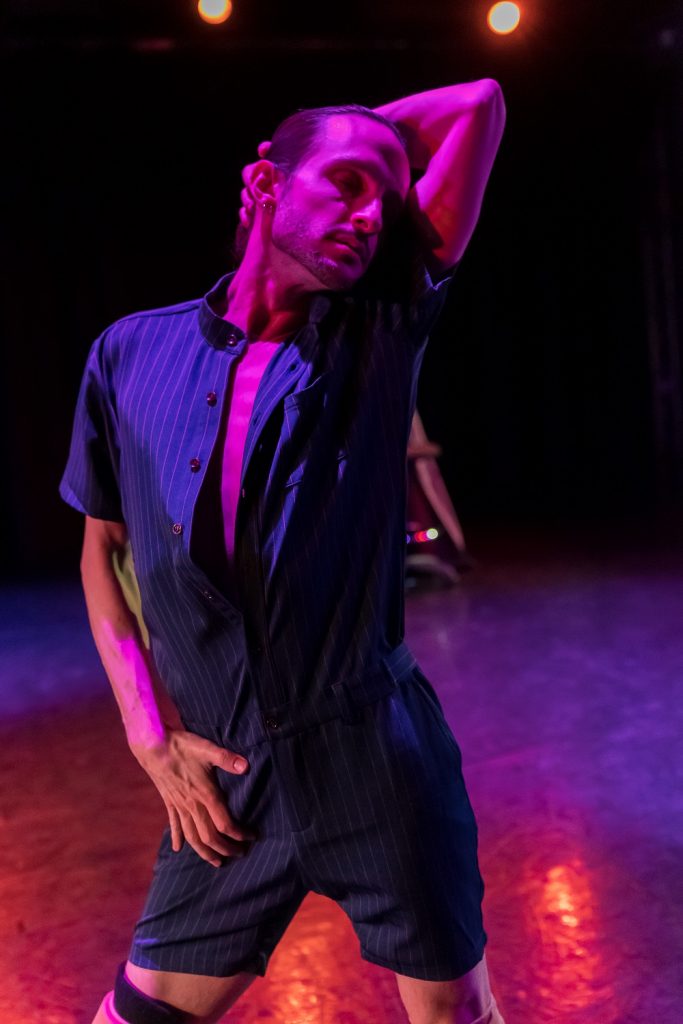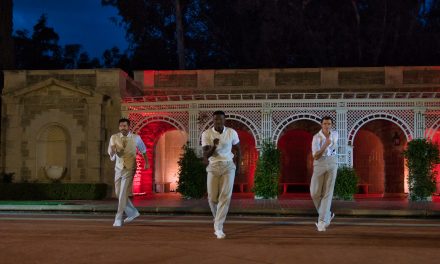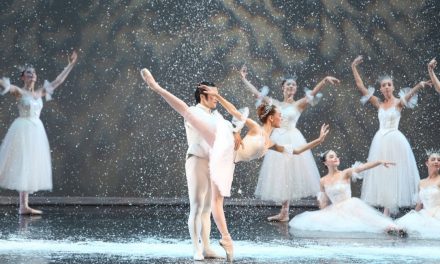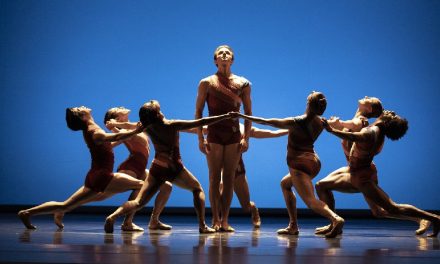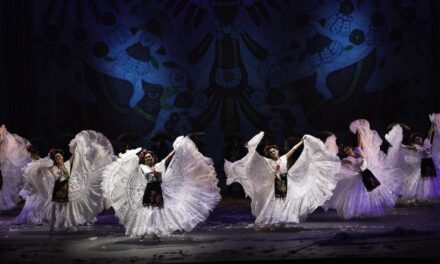The word ‘daddy’ can take on…several connotations. Andrew Pearson tells his audience, even in Hebrew, the equivalent word ‘Abbale’ can mean father or lover. In his latest solo work performed at The Broadwater, he explores both.
Pearson deftly braids three stories, each complexly colored with nostalgia and reflection, into Abbale. The first is obvious: his relationship with his own father. The second would be a love story featuring his older ex-partner, Asaf. And the last is told entirely third-person: Asaf’s relationship with his father.
To cover lifetimes in 90 minutes is no small task, especially as this is Pearson’s first full-length theatrical script. Director, dramaturg, and script developer Lisa Owaki Bierman writes that she and Pearson began working on this script almost four years ago, so it’s most definitely not a rush job. Pearson is deeply intentional with each sentence, just as he is with each meaningful movement — that’s what makes this piece work.
Pearson blends the stories to a collage of sounds including his own recorded narration, musical arrangements and vocal performances by Kevin DeKimpe, John Lucido, and of course George Michael and Elton John (with additional sound design by DeKimpe). He’s an expert curator of nostalgia here, especially when using pop hits to measure the age gaps between himself and Asaf.
One of his most impressive feats, aside from performing nonstop for over an hour, is the ability to conjure a setting from just a movement or two. Video design by Ben Jehoshua (Asaf himself) and lighting design by Ric Zimmerman give just enough to round out the scene without distracting from Pearson’s performance. But he truly is the scene throughout — which he points out has been a personality trait since he was young.
The nature of the memoir makes it difficult to direct at times, because real life just isn’t linear. Even in the floating moments, though, Pearson is sure of where he’s going, and you feel safe drifting along with him. He dances with a partner made of a prop coat and shoes; he becomes the partner; he contends with the coat; he wears the shoes. There’s a vulnerability expressed in the movement that layers on top of the dialogue. The gestures in his choreography are strikingly precise, but he still finds the push and pull of a curious playmate. And a little flirting with the audience never hurts.
I’ve said this about Pearson before, and I’ll say it again. There is full-body commitment in everything he does, and that never fails to draw me in. In a work like this, it makes you experience the narrative as your own. You feel the full spectrum of human emotions along with him, and that alone makes the evening worth it.
The trademark elements of Pearson’s earlier works remain: specific, theatrical gestures and an ever-present spirit of play. But as he tells a story so unmistakably personal, whether to him or to Asaf, there is such care placed in each syllable. In fact, a point he makes throughout the show is that a fatherly relationship often has a giver and a taker, and that he knows himself to be a taker. But I think this work is its own counterpoint — the care put into expressing each memory is Pearson’s gift to Asaf and to us all.
For more information about Andrew Pearson, please visit his website Bodies In Play.
Written by Celine Kiner for LA Dance Chronicle.
Featured image: Andrew Pearson in his Abbale – Photo by Brian Hashimoto – Instagram: @hashimoto_images

